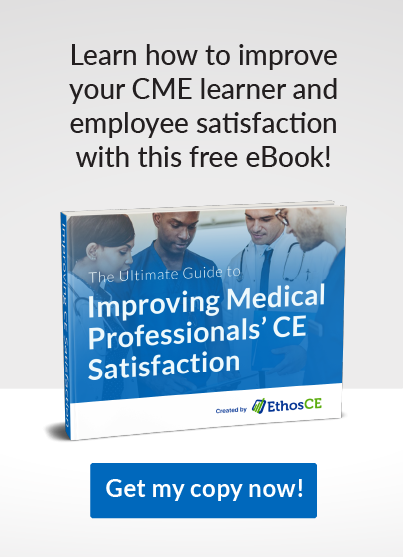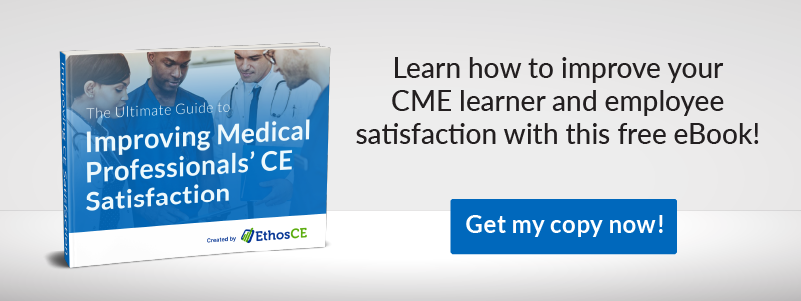What Are Accredited CME Providers Responsible for Moving Forward?
The recent updates to the ACCME’s Standards for Integrity and Independence in Accredited Continuing Education have changed your accredited CME provider responsibilities.
The five Standards cover every aspect of the way that you deal with valid content, commercial bias, relevant financial relationships, commercial support, and ancillary activities.
Here, we look at the updates and what you’re responsible for going forward.
Standard 1: Ensuring Valid Content
Regarding the first Standard, your accredited CME provider responsibilities begin with making sure your content is fair and balanced when it comes to dealing with your planners, authors, and faculty and what they provide to your learners. The content has to support effective and safe patient care and prevent any risks or dangers that outweigh the benefits. The planning activities and CME presented must constitute any proper diagnostic views and therapeutic options and conform to accepted experimental design, data collection, analysis, and interpretation standards. You must also be certain that proper learner exploration of various topics takes place without allowing advocating or promoting those topics that have not yet been adequately based on current science, evidence, or clinical reasoning.
Standard 2: Preventing Bias and Marketing in Continuing Education
According to the second Standard, your decisions regarding planning, faculty selection, delivery, and evaluation of accredited education have to be made without influence from owners and employees of ineligible companies. Your accredited education must be free of marketing or sales of products or services. Overall, any planners, authors, or faculty can’t sell or market their products or services. As an accredited provider, you have to receive consent from your learners before sharing their names or contact information from ineligible companies or their agents.
Standard 3: Identifying, Mitigating, and Disclosing Relevant Financial Relationships
When it comes to your accredited CME provider responsibilities, there are several things that you’ll need to do as part of the third Standard.
You will have to collect disclosure information from all those in control of content about their financial relationships with ineligible companies and determine which of each individual’s relationships are relevant. Now, individuals coming in as planners, authors, or faculty must not only disclose their current relationships to you but also include those from the past twenty-four months, which is up from twelve months previously. Even when it comes to research grants, you must ensure that these are disclosed, even if those funds go to the researcher’s institution and not to the researcher.
Going forward, you’ll need to provide a statement that all the information regarding relevant financial relationships has been mitigated. When it’s mitigated, it’s considered resolved.
However, you’ll no longer need to collect disclosure information from individuals in charge of content about any relevant financial relationships regarding their spouses or partners. You will not need to identify, mitigate, or disclose relevant financial relationships for areas such as nonclinical activities, activities where learner groups are in control of the content, or any self-directed activities.
Standard 4: Managing Commercial Support
The accredited CME provider responsibilities for the fourth Standard encompass what you should do in the future if your organization receives financial or in-kind support from ineligible companies, or commercial support.
It’s up to you to ensure that your education stays independent of the ineligible company and that the commercial support does not result in any commercial bias or influence in the educational activities. Any support cannot establish any financial relationships between your planners, authors, faculty, or anyone who has control of the content.
You must make all the decisions about the receipt and disbursement of the commercial support. If you do have a relationship with an ineligible company, you’ll need to ensure that they do not directly pay for any education or learner support. You can, however, use commercial support to fund honoraria or travel expenses for planners, faculty, and others who are in control of content—but only for these roles.
When it comes to individual learners or groups of learners, you cannot use commercial support to pay for their travel, lodging, honoraria, or personal expenses. That said, you can use commercial support to defray or eliminate the cost of the education for all learners.
You’ll also need an agreement because you will have to meet all terms, conditions, and purposes between yourself and the ineligible company. This must be completed before the accredited education begins.
Another responsibility deals with record keeping. You will need to keep a record of the amount of the commercial support received and how it was used. You’ll have to produce this documentation upon request to the accrediting body or ineligible company that provided your commercial support.
Finally, you must disclose to your learners the name(s) of the ineligible company or companies that provided the commercial support. In this disclosure is the nature of the support if it was in kind before the education taking place. Your disclosures cannot include any ineligible company corporate or product logos, trade names, or product group messages.
Standard 5: Managing Ancillary Activities When Offered in Conjunction with Accredited Education
If the fifth Standard applies to your organization, your CME provider responsibilities include reviewing your process to ensure that your learners can distinguish between accredited education and other activities that consist of marketing from ineligible companies and non-accredited activities.
Live activities—whether they’re virtual or in-person—must have thirty-minute intervals before and after the accredited activities and other activities, and the non-accredited activities must be clearly labeled.
Likewise, when you are dealing with print, online, or digital activities, you must be sure your learners can engage with the education without the presence of product promotion or advertisements.
Moving Ahead
When you’re planning and implementing the new ACCME Standards, there is a great deal of preparation involved. However, when you know what you’re responsible for moving forward, you will be ready for the coming changes.
At EthosCE, we understand the challenges of staying up to date and compliant with ACCME changes. We know how critical it is to get things done right the first time when it comes to team-based education and success.
To learn how EthosCE can enhance the continuing education of your healthcare teams, schedule a free 1-on-1 demo with one of our specialists today!
 We're now part of the Cadmium product suite! Learn more
We're now part of the Cadmium product suite! Learn more 


